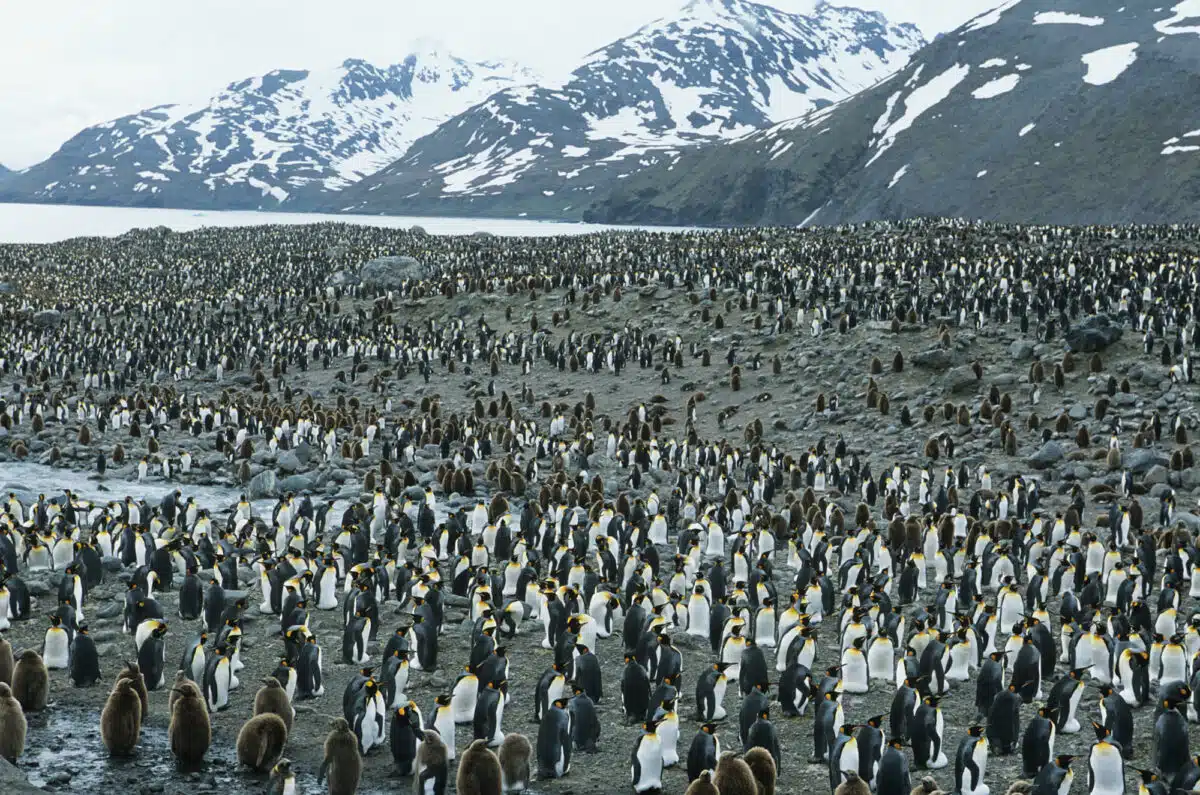The discovery of new emperor penguin colonies in Antarctica marks a significant advancement in wildlife research. Using satellite mapping technology, scientists from the British Antarctic Survey (BAS) have located previously unknown colonies, bringing the total known emperor penguin colonies around Antarctica to 66. This discovery is notable as half of these colonies have been identified through satellite imagery, showcasing the power of modern technology in ecological studies.
Satellite Technology: Unveiling New Emperor Penguin Colonies
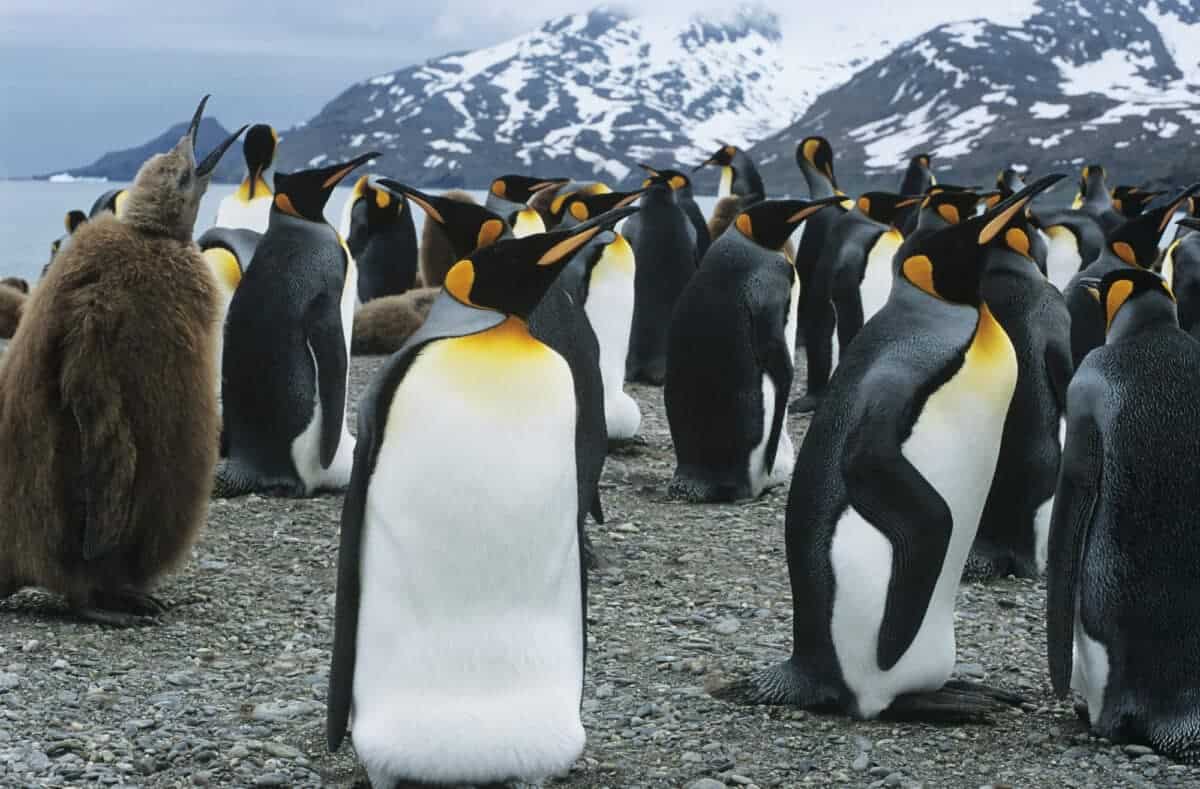
The use of satellites, particularly the European Commission’s Copernicus Sentinel-2 satellite mission, has been instrumental in these discoveries. Scientists analyzed satellite images, focusing on the distinct red-brown patches created by penguin guano (poo) against the Antarctic ice. This technique enabled the identification of small colonies that would otherwise be difficult to detect due to their remote and inaccessible locations
Emperor Penguins: An Indicator of Climate Change
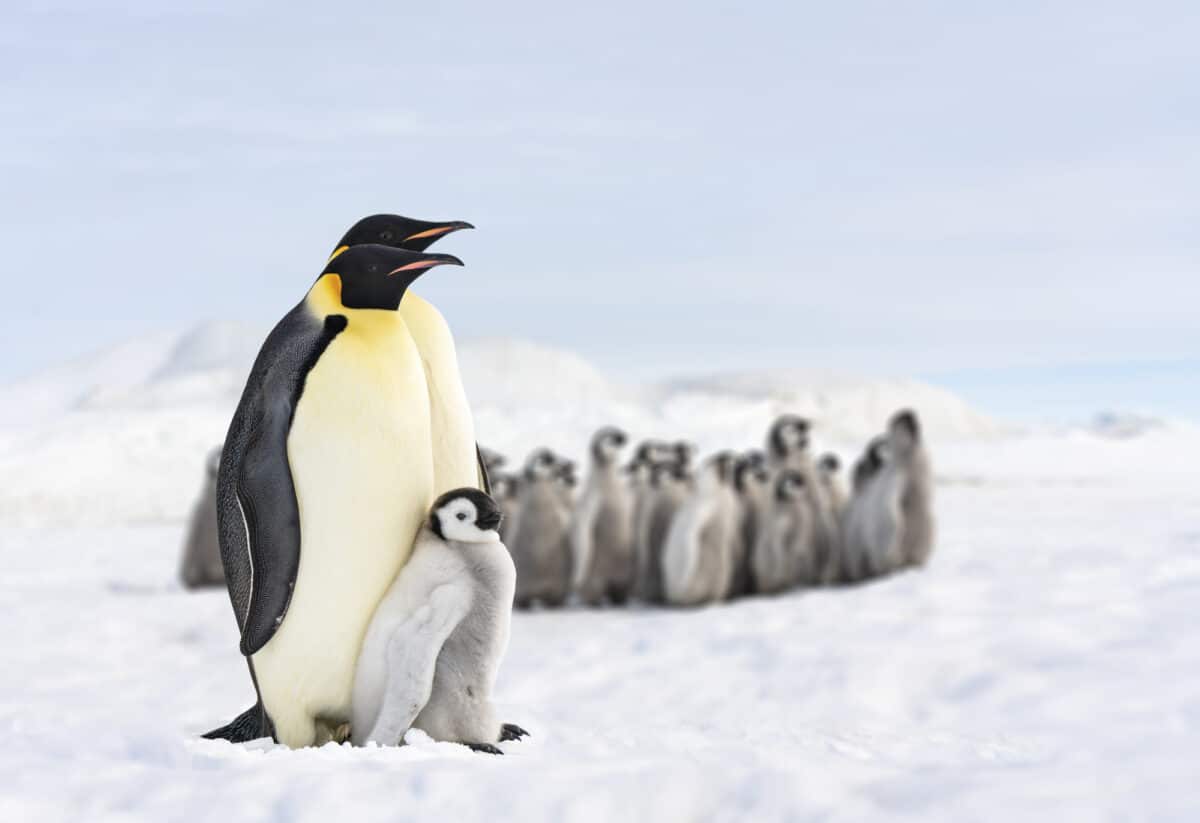
Emperor penguins are the largest of the penguin species, standing nearly 4 feet tall and weighing up to 88 pounds, these birds are adapted to survive the harsh Antarctic climate. They are the only bird species that breed during the Antarctic winter, trekking up to 75 miles across the ice to breeding colonies. Their remarkable social behavior, especially during breeding season, includes huddling together for warmth in temperatures as low as -58 degrees Fahrenheit.
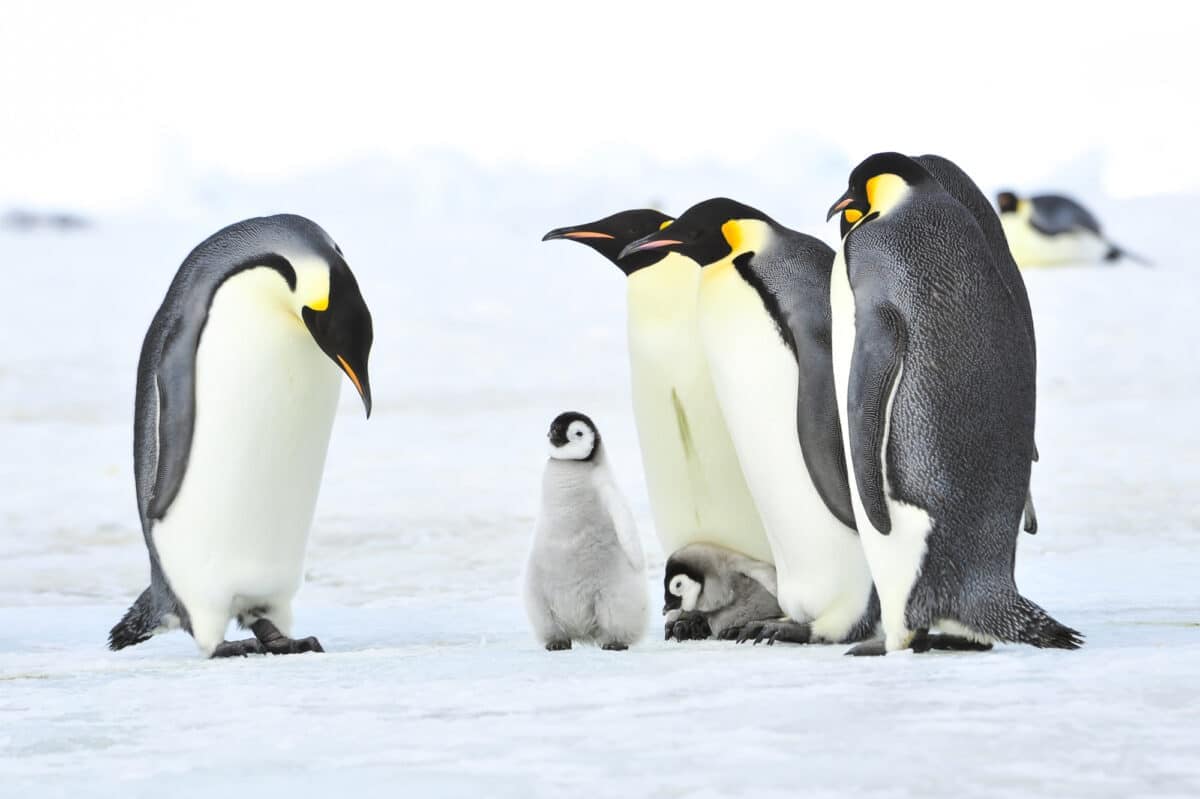
Emperor penguins depend on sea ice for breeding, making them particularly vulnerable to climate change. The new emperor penguin colonies add 5-10% to the overall penguin population estimate and are primarily situated in the more northern parts of Antarctica. These regions are more susceptible to the impacts of climate change, raising concerns about the future of these colonies as sea ice continues to decline.
The Canaries in the Coal Mine

The discovery of these colonies is bittersweet, as they are located in areas predicted to be greatly affected by climate change. This makes emperor penguins a vital indicator species for monitoring the health of the Antarctic ecosystem. Researchers emphasize the need to closely observe these colonies, as their fate could foretell the broader impacts of environmental changes in the region.
Future Directions and Conservation Efforts
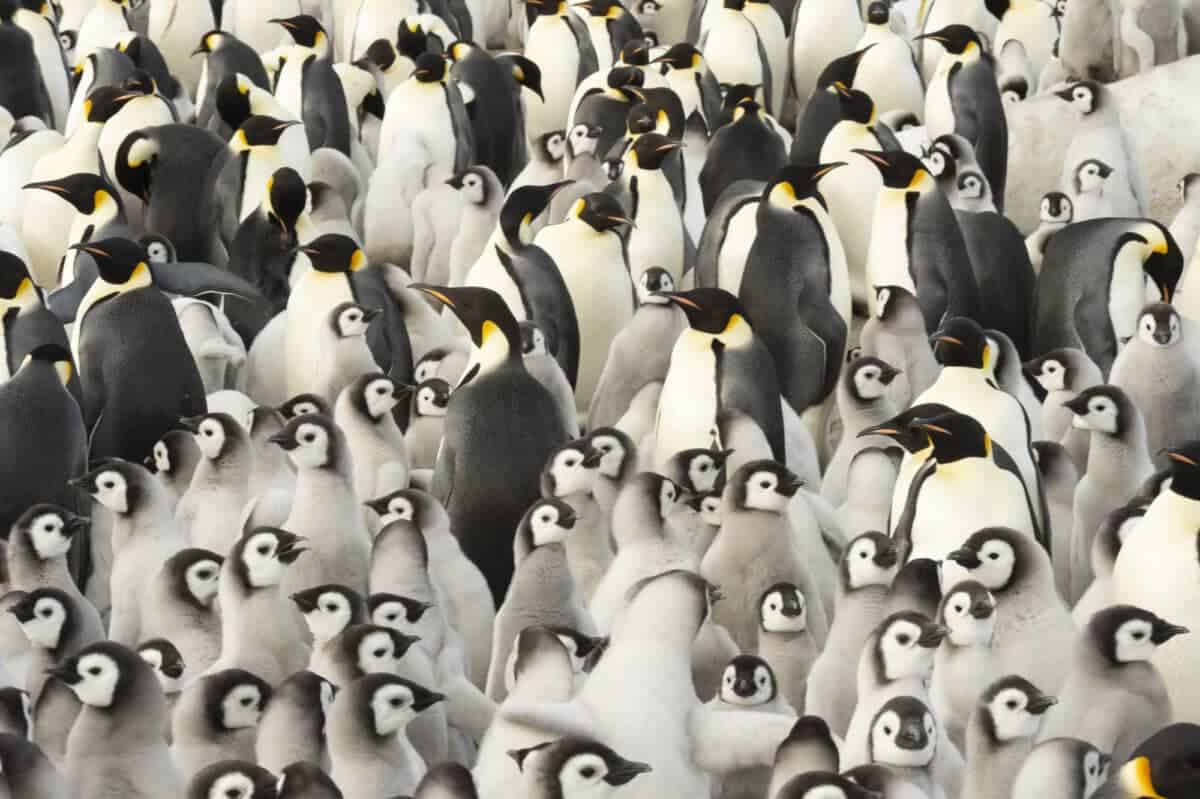
The findings from this study underscore the importance of satellite technology in wildlife conservation efforts. By providing a more accurate count of emperor penguin populations and identifying at-risk colonies, researchers can better understand and plan for the impacts of climate change. Continued monitoring of these colonies is crucial for developing effective conservation strategies to protect these majestic birds and their habitat.
In summary, the discovery of new emperor penguin colonies in Antarctica from space highlights the critical role of technology in ecological research and the urgent need for conservation efforts in response to climate change.
What do you think about these new emperor penguin colonies? Leave a comment below.
Thank you for following along with this article – Discovering New Emperor Penguin Colonies from Space
You may also like:
- Thousands of Emperor Penguin Chicks die in the Antarctic
- Uncover the Largest Colony of Emperor Penguins
- Emperor Penguin
Join our Forum for free today!

- Shocking Survey Results of only 718 Snow Leopards Identified in India - July 18, 2024
- Do Octopuses Punch Fish For No Reason? - July 5, 2024
- Brave Farm Animals Save Chicken Friend FromHawk - June 30, 2024

